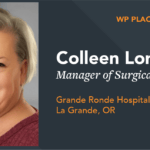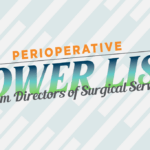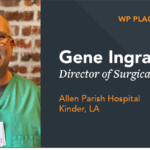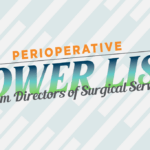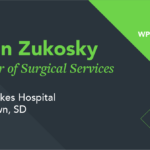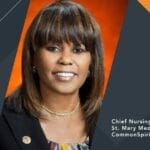“Your STUPID WOKE Agenda”: LGBTQ+ Directors of Surgical Services Weigh in on Comments Heard in the OR
In recognition of Pride Month, we sent out a survey to perioperative leaders on how ORs (and the facilities they reside in) approach LGBTQIA+ diversity and inclusion as it relates to both staff and patient care. Over three-quarters of respondents reported the industry as being behind the curve/struggling or having mixed results/making slow progress.
Almost 90% said their facilities do not offer gender reassignment surgeries, and none offer transgender advocacy programs to support patients. Some barriers that members of the LGBTQIA+ faced in receiving equitable care included:
- Poor access to healthcare in smaller communities where there are no LGBTQIA+ support groups
- Transgender individuals not receiving necessary patient care
- Fear of discovery or lack of empathy from healthcare providers blocking access to care
Some of the challenges faced on the staff side were feeling unable to speak freely about their partners or being asked to disclose sexual orientation before joining the staff of a new facility.
In short, there is a lot of work to do.
Thomas Callan and S. Mills were gracious enough to share more details about their experiences.
Tom Callan, MHA, BSN, RN, Director of Surgical Services
“Believe it or not, I have been lucky everywhere—Florida, New Orleans, Memphis—both as an interim and full-time. I was in Memphis for five years. One incident with an individual, not a facility, happened with a transgender patient. The individual had a problem taking care of this patient. I told them, ‘You do not have to take care of this person, but this person must be taken care of. You can take a step back, but this is not the end of it. We need to have a conversation.’ I had multiple nurses volunteer to do it, and the facility reprimanded that person.
I have been gay since I was 13. One thing I have learned is something called mainstreaming. You live your life and show them. I will have a conversation, and I may slip in, ‘My husband thinks this.’ And people have freaked out. First, I let them. I look at them and say, ‘Let’s talk about it.’ I’m willing. If they’re not, that’s fine too. But the point is, I am not going away.”
S. Mills, BSN, RN, CNOR, Veterans Affairs Surgical Services
“We had a young [gay] man getting surgery. A nursing assistant transported him to the holding area. As he walked down the hall to the nurse’s station, he began making snide comments; he said it was against the Bible and used the f-word and several other derogatory terms. Thank goodness they did not do this in front of the young man. I told them, ‘This is not a kind thing to do. This man served our country; his personal choices are his, and you know nothing about him. Will you walk down the hall and talk badly about other patients?’ My son is pansexual, and my daughter is lesbian, so I really did not appreciate his comments. He just shrugged it off and walked on.
Another incident occurred when we did our first genital reconstruction surgery about three months ago. The patient was a trans female. I heard yelling down the hall when I came in for my shift. The person came out of a room and said, ‘Hell no, I am not going to work with this patient. It’s against my religion, it’s an abomination, that’s not the way God made people.’ I don’t know if the patient was able to hear them or not. It was right at the shift change, so the case was delayed because they refused to do anything. Then, the nurse they assigned to come on later did that same thing. She was crying and saying it was against her religion. I was across the hall and said I would do it. And she did go to the manager, declared she was not doing it, and volunteered me. But the manager made her go back and do the case.
The consequence of experiences like this is that people in the LGBTQIA+ community won’t seek healthcare. Once veterans retire, they often get jobs in the civilian world that come with private insurance. But there are a lot of lower-income or homeless veterans that don’t have healthcare except through the VA.
I try to educate people the best I can. I’ve signed up as a safe healthcare provider for the [LGBTQIA+] community, which means it will not bother me to care for those patients. I’m on the sexual orientation and gender diversity committee at the VA. It’s in the infancy stages of just trying to educate people on just being accepting of others.”
Researchers at Stanford Medicine are conducting The Pride Study, a national longitudinal study, to collect data that will help improve the health of LGBTQIA+ people. For more information, click here.
